Walking in London - 6/12/2023
Sarah and I made a list of a few places we wanted to visit in Central London. These were the National Gallery,
Tate Modern, Millennium Bridge, St. Paul's Cathedral, and Christ Church Greyfriars Church Garden. Today was the
day that we tick these off our list. And also discover a few more sites along the way.
We headed out on foot this morning walking the beautiful back streets of Bloomsbury to make our way to Charing Cross
Road and the National Gallery at Trafalgar Square.
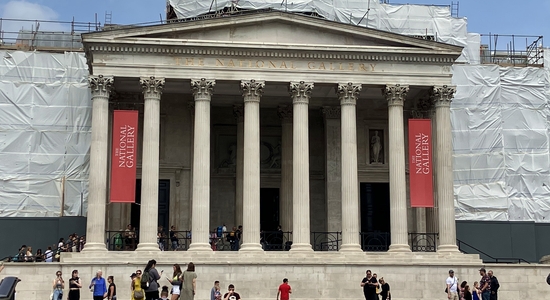
We have both visited the gallery before, Sarah several times, and with the collection's more than two thousand works
of art we were able to see many more pieces that were new to us. And once again, we both stopped to see the
Wilton Diptych once again.
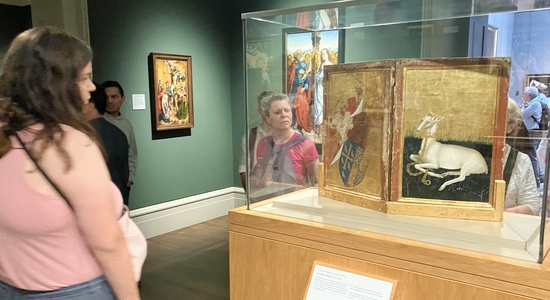
Next, we were headed towards the Thames when we came upon the Horse Guards Parade. This is the ceremonial
parade ground in St James's Park and is the scene of Trooping the Colour on the King's official birthday in
June.
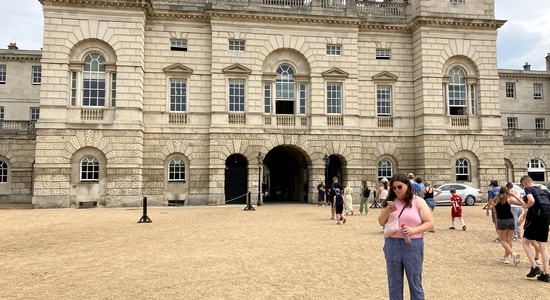
We walked past Big Ben, officially Elizabeth Tower, and were able to view it in all of its grandeur now that the
scaffolding has been removed, after its five year restoration.
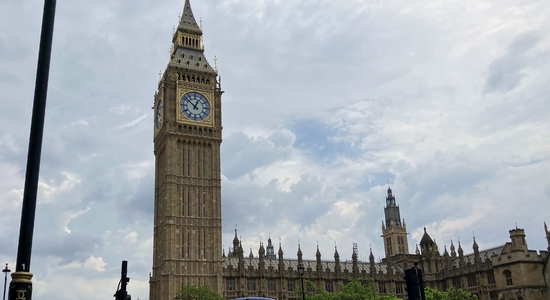
Walking alongside the Thames we came across Whitehall Gardens. The garden laid out in 1875, has a wonderful
array of shrubbery, bedding displays, and mature trees.
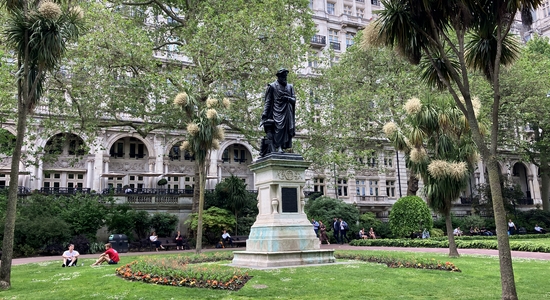
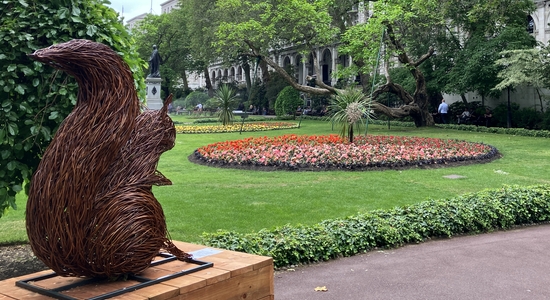
Click here to view my pictures of Whitehall Gardens.
Continuing along the river we saw the London Eye.
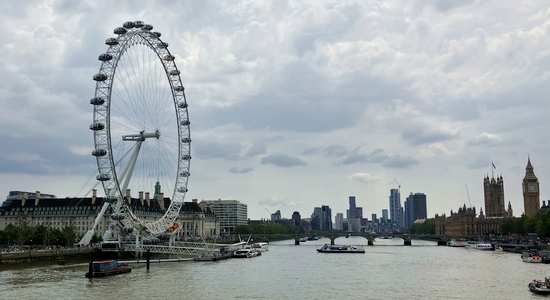
We crossed the river on the Golden Jubilee Bridges and continued walking east. Along the waterfront we ate
lunch at Gourmet Pizza. Further along the river we checked out some of the shops selling souvenirs and
unusual gifts.
We passed under Blackfriars Bridge.
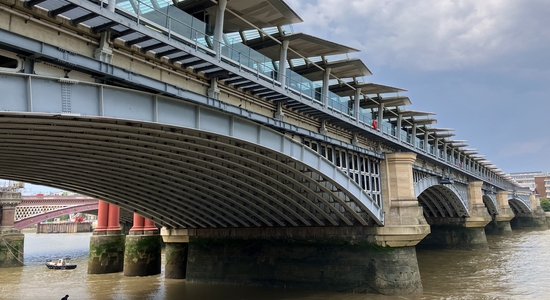
And soon we arrived at the Tate Modern. It houses the UK's national collection of international modern and
contemporary art. Tate Modern is housed in the former Bankside Power Station and is one of the largest museums
of modern and contemporary art in the world.
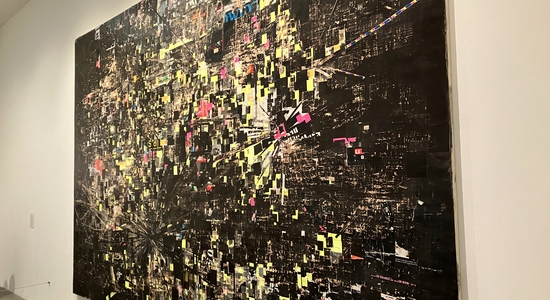
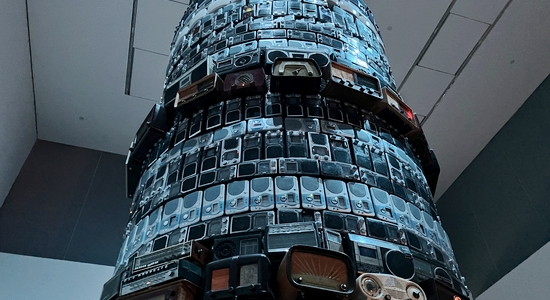
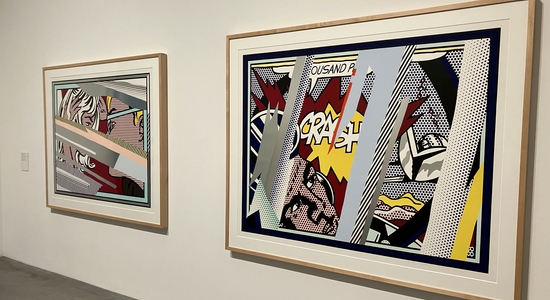
Click here to view my photos at the Tate Modern.
We crossed the river on the adjacent Millennium Bridge. This footbridge is a steel suspension bridge and
opened in June 2000. It is the newest bridge across the Thames.
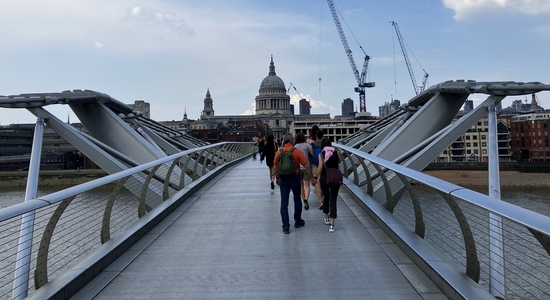
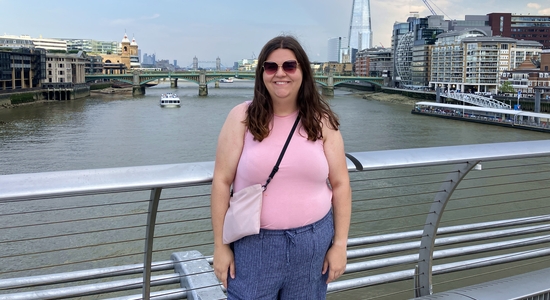
Click here for my photos of Millennium Bridge.
Next on our journey was St. Paul's Cathedral, an Anglican cathedral and the seat of the Bishop of London. It
was part of a major rebuilding program in the city after the Great Fire of London of 1666. Construction
started in 1675 and the cathedral opened in 1710.
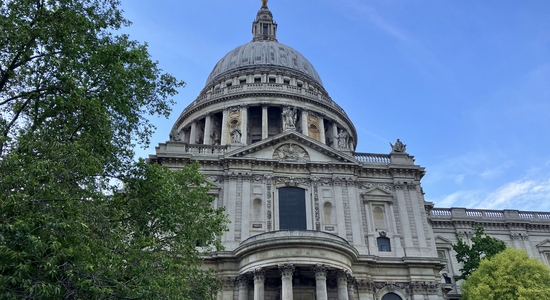
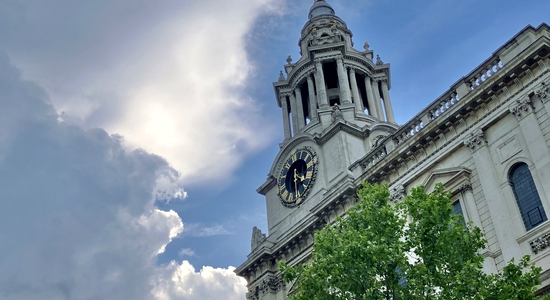
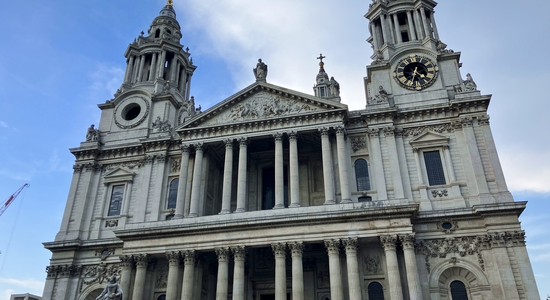
Click here to see my pictures of Saint Paul's Cathedral.
A short walk north was Christ Church Greyfriars Church Garden. The previous church on this site was destroyed in
the Great Fire of London. A new church and tower (without steeple) were completed in 1687. The steeple,
standing about 160 feet tall, was finished in 1704. The church was then largely destroyed by bombing during
the Second World War. The decision was made not to rebuild the church; the ruins are now a public garden.
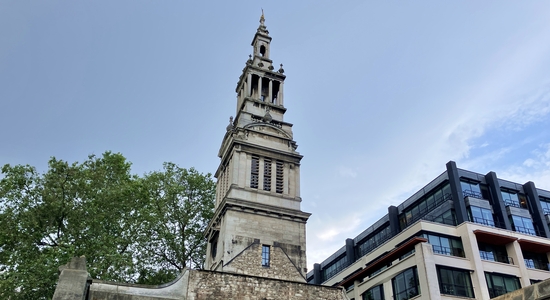
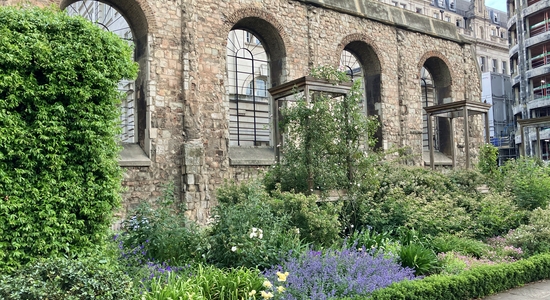
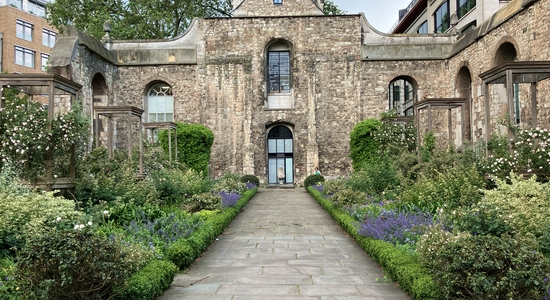
Click here to see all of my pictures of Christ Church Greyfriars Garden.
We walked a few blocks more to arive at Barbican. The Barbican Complex is primarily made up of Barbican
Estate, is a residential complex of around 2,000 flats, maisonettes, and houses, Barbican Centre, Europe's largest
performing-arts center, Barbican public library, the City of London School for Girls, the Museum of London, and the
Guildhall School of Music and Drama. This area was virtually demolished by bombing during World War II. Planning to redevelop the site began
during the 1950s. The 35 acre estate was built between 1965 and 1976. The estate also contains three
of London's tallest residential towers, at 42 stories and 404 feet high. The complex is architecturally
important as it is one of London's principal examples of concrete brutalist architecture, also includes a lake and
green space.
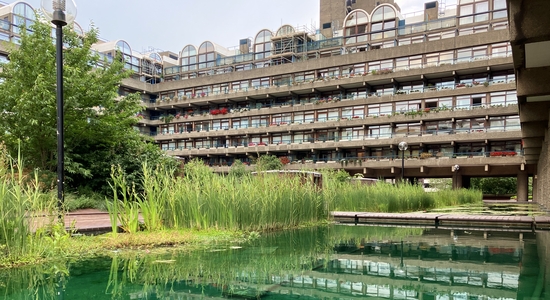
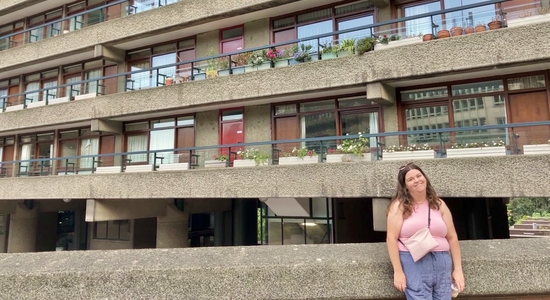
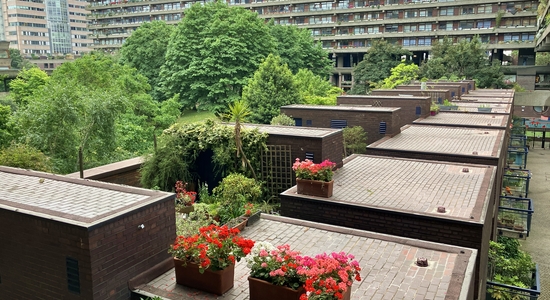
Click here to see all my pictures of Barbican.
By late afternoon we had done quite a bit of walking, so we took the tube back to our hotel for a little rest.
For supper, we headed to St. Pancras train station and ate at The Barrel Vault, a Weatherspoon establishment.
From there we made the walk north to see the Gasholders. The iconic structures were built in the 1860s as
part of Pancras Gasworks. The gasholders remained in use until the late 20th Century and were finally
decommissioned in 2000. When the regeneration of King's Cross kicked off in the 2010s, gasholders no.
8, 10, 11 and 12 were dismantled and shipped piece by piece to Shepley Engineers in Yorkshire for two years of
restoration. In 2013 gasholder no. 8, returned to King's Cross and was rebuilt piece-by-piece in its new
home on the banks of the Regent's Canal and the centerpiece of Gasholder Park. Meanwhile, gasholders no.
10, 11 and 12 were reinvented at an apartment complex adjacent to the park.
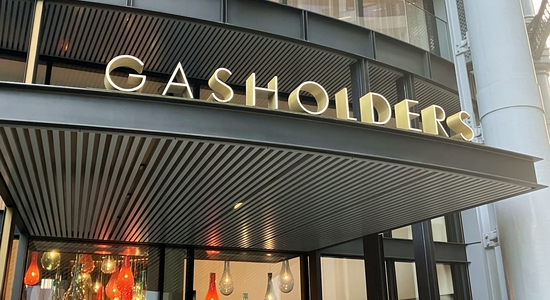
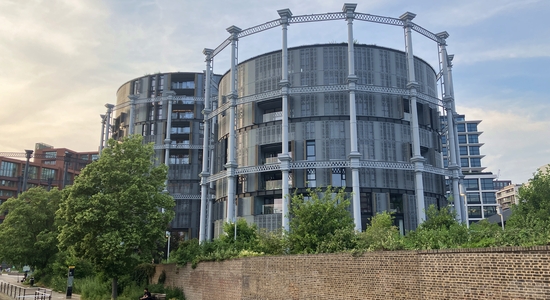
Click here to see my photos of Gasholders.
Click here to see various pictures from around London.
Tomorrow Sarah and I will be taking the train to Liverpool for a full day of Beatles history.
Previous | Blog list | Next
|